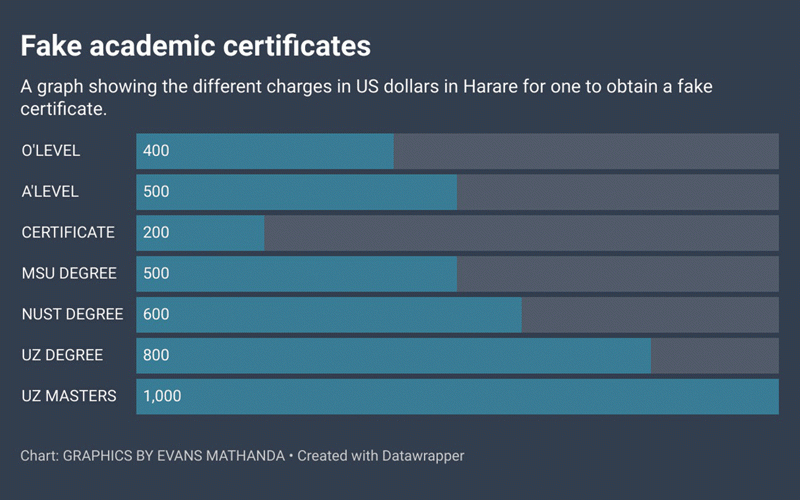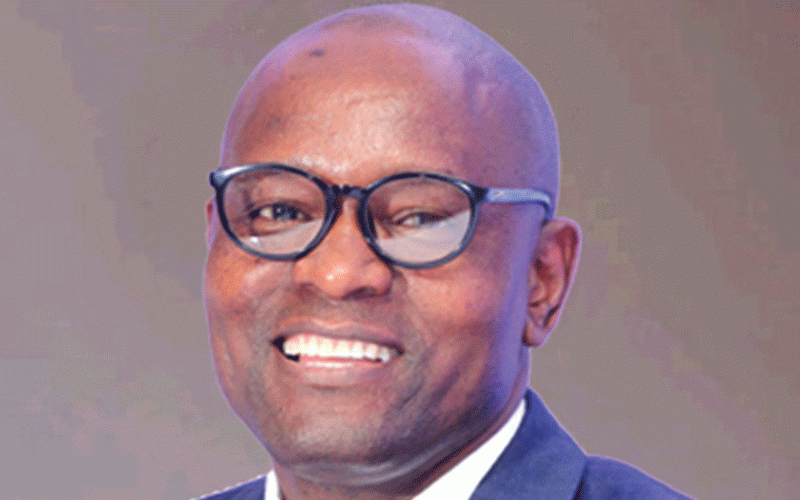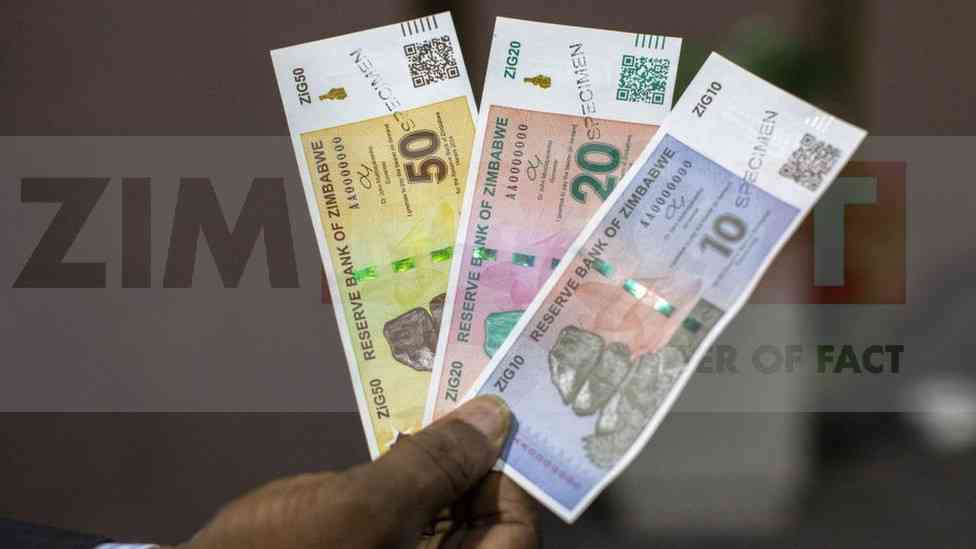IN recent times, citadels of academic excellence have been entangled in scandals over the issuance of fake academic qualifications.
At the height of the late former President Robert Mugabe's rule, the University of Zimbabwe (UZ) was caught in the eye of a storm after it controversially awarded former First Lady Grace Mugabe a “fake” doctorate in 2014.
When the news surfaced, then UZ Vice-Chancellor Levi Nyagura was probed over the matter.
Following the military coup that toppled Mugabe in 2017, ushering into power President Emmerson Mnangagwa, Nyagura was suspended and arrested.
Today, ordinary Zimbabweans without any political ties desperate to get hold of the coveted academic credentials are devising corrupt schemes to achieve their ends.
- Triangle retrenches as economy bites
- Caledonia in US$42 million capex drive for 2025
- Mukuru launches mobile wallet in Zim to bolster financial inclusion
- Economy heads for a bloodbath: Biti
- NBS completes Glaudina housing project ahead of schedule
Investigations by NewsDay revealed that a fake Zimbabwe School Examinations Council (Zimsec) Ordinary Level certificate is being sold for US$400, while an Advanced Level certificate is selling at US$500.
The whole process takes three days.
A Midlands State University (MSU) undergraduate certificate is being sold at US$500, while those who want a UZ undergraduate degree certificate have to part with US$800.
The charges vary depending on the institution.
According to one bogus certificate manufacturer, an undergraduate degree certificate from the National University of Science and Technology (Nust) goes for US$600.
Our journalist (name withheld) posed as a potential client who was desperately in need of an O Level certificate.
After providing all the details, an O Level certificate was sent after three days, but on a view once option on WhatsApp.
NewsDay was then told to send US$300 via a mobile money transfer platform (EcoCash) to a number (078602XXXX) registered under one Talent Zvanyanya.
However, the publication requested to deliver the money in hard cash upon collection of certificate.
“WhatsApp me on +26377621XXXX. I produce your document, then you pay me for the legitimate academic certificates, which are registered within the system of an institution of your choice. Send EcoCash or else I will remove the certificate from Zimsec database,” he threatened NewsDay.
Posing as a well-connected academic with inside access to school systems, such thieves are exploiting individuals desperate to enhance their career prospects, who are prepared to part with huge sums of money

Their work is simple yet effective.
They promise to add fake academic qualifications to universities systems for a fee.
However, according to Zimsec spokesperson, Nicholette Dlamini, their system is foolproof and no unauthorised person has access to their database.
Even Zimsec’s own employees have limited access.
“Our original certificate has never been cloned by fraudulent individuals preying on others. We offer a service to employers, tertiary institutions, local and abroad, verification of results. This service flushes out fraudulent certificates,” Dlamini said.
The demand for fake academic qualifications is on the rise in Zimbabwe, fuelled by the intense competition for jobs and limited opportunities.
Individuals desperate to secure employment or advance their careers are falling prey to unscrupulous people, who exploit their vulnerability for financial gain.
“Ko Grace akangoripihwa wani doctorate nechikoro chihombe [Even Grace was awarded a fake doctorate by the biggest university in Zimbabwe]. I believe everything is possible as long as you have money nothing is impossible,” said an unemployed youth who claimed to have studied a three-year bachelor’s degree in Sociology at UZ.
“My sister struggled with O Level Maths and she ended up falling for these bogus people who sold her a Maths certificate with a credit symbol.
“Now she is a Geography teacher in Masvingo. What she wanted was an entry at Mutare’s Teachers College. So, I believe money is everything we need in Zimbabwe.”
Higher and Tertiary Education minister Amon Murwira said a person who did not train should not hold any certificate. Murwira acknowledged that there are people who are manufacturing fake certificates, adding that this was a criminal offence and warranted
arrest.
Questions have been raised over how watertight these university and other institutions’ systems are, particularly taking into consideration the fact that there are people who claim to have access to such
systems.
In 2021, UZ student Martin Magomana unlawfully gained access to the institution’s computer network and allocated accommodation to students, netting US$3 000 in the process.
In an interview, UZ Vice-Chancellor Paul Mapfumo said the higher learning institution recently introduced a new design of certificates as a strategy to make their security features watertight.
“I can’t speak for the thieves with their tricks, but it’s good they actually state it’s fake because they cannot produce all the features of our certificates,” he
said.
“This is why we launched a new certificate to run away from the old one so that we improve our security. We did that only to address the scandal of fake certificates being sold by those bogus
individuals.
“If you look at some of the certificates they make in streets, they still look like our old design of certificates, but otherwise we have changed a lot of security features to address that. We are not feeling that risk
anymore.”
Mapfumo added that anyone who needed to access the university academic register could do so through the office of the registrar.
Employers should become very sophisticated in detecting fraudulent credentials as this maintains the credibility of the nation’s education system.













